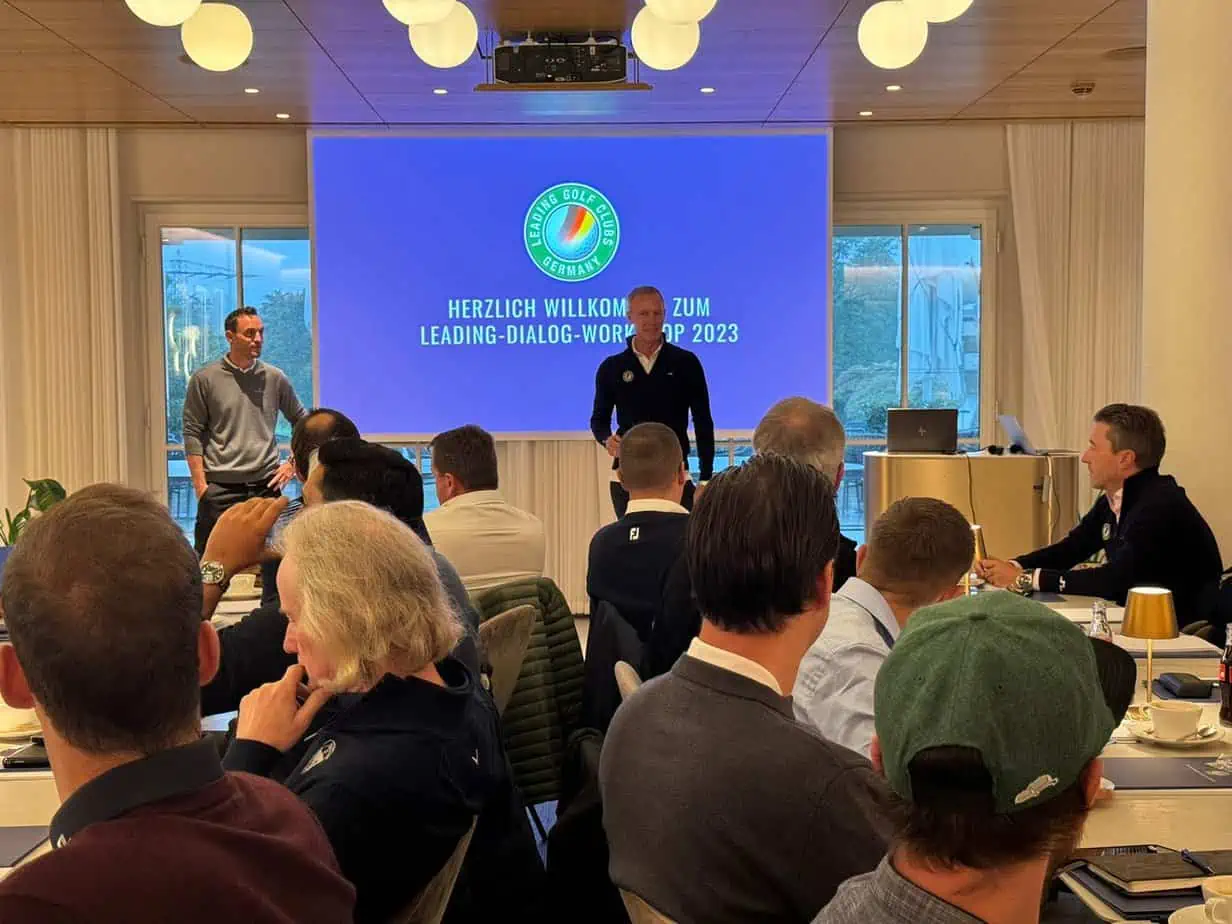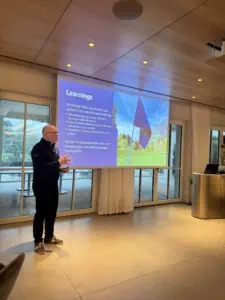Leading Golf Clubs: Exchange of knowledge in greenkeeping
The association Leading Golf Clubs of Germany aims to strengthen networking and the exchange of experience between head-greenkeepers, club managers and presidents. For the first time, the St. Leon-Rot Golf Club, also a member of the association of German quality facilities, hosted an autumn workshop to discuss exclusively essential topics related to greenkeeping.
With the areas of autonomous mowing, water management of the future as well as teaching and training of greenkeepers, the presidium of the Leading Golf Clubs of Germany had decided to deal with points that are currently moving the golf market in Germany strongly and are characterized by great dynamics.
At the St. Leon-Rot GC , Olle Markusson, Director of Product Management for Husqvarna, and turfgrass expert Prof. Dr. Bernd Leinauer from New Mexico State University provided insight into new technologies and research results. While Markusson dealt with the development of autonomous mowing with all its advantages but also problems and future scenarios, Leinauer is considered a proven expert in the field of grass research. He addressed the impact of climate change.
How sophisticated and detailed water management can be on a golf course in Germany could also be seen in the remarks of Daniel Lüttger, superintendent of the GC St. Leon-Rot, who emphasized the sustainable orientation of the club. “Profitability and sustainability go together anyway,” he noted, and also surprised workshop participants by saying, for example, that the club had established a test plot for bermudagrass to test the survivability of warm-season grass in Baden-Württemberg.
Which grasses will German courses need in the future?
“New Mexico clubs today are where you’ll be in 30 years,” Leinauer noted, referring to the topic of grasses. After all, golf courses in New Mexico can be used to test very well which grasses are relatively drought-resistant on the one hand, but at the same time can live with strong temperature fluctuations between summer and winter. The increase in extreme heat days also means that red fescue grasses may not be the first choice in Germany in the future, he said. However, research on this topic is still ongoing, he said.
For Bernhard May, president of Leading Golf Clubs, the fall workshop on greenkeeping was “a test balloon.” His summary was extremely positive in view of more than 50 participants from all over Germany: “My expectations have been exceeded.”









